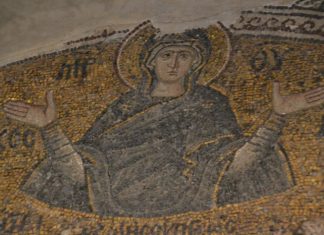8.II.553. Nov.146. Justinian to Areobindas, P.P.
A Permission granted to the Hebrews to read the Sacred Scriptures according to Tradition, in Greek, Latin or any other Language, and an Order to expel from their community those who do not believe in the judgment, the Resurrection, and the Creation of Angels.
Preface.
Necessity dictates that when the Hebrews listen to their sacred texts they should not confine themselves to the meaning of the letter, but should also devote their attention to those sacred prophecies which are hidden from them, and which announce the mighty Lord and Saviour Jesus Christ. And though, by surrendering themselves to senseless interpretations, they still err from the true doctrine, yet, learning that they disagree among themselves, we have not permitted this disagreement to continue without a ruling on our part.
From their own complaints which have been brought to us, we have understood that some only speak Hebrew, and wish to use it for the sacred books, and others think that a Greek translation should be added, and that they have been disputing about this for a long time. Being apprised of the matter at issue, we give judgment in favour of those who wish to use Greek also for the reading of the sacred scriptures, or any other tongue which in any district allows the hearers better to understand the text.
Chapter I.
We therefore sanction that, wherever there is a Hebrew congregation, those who wish it may, in their synagogues, read the sacred books to those who are present in Greek, or even Latin, or any other tongue. For the language changes in different places, and the reading changes with it, so that all present may understand, and live and act according to what they hear.
Public conceals their depravity
Thus there shall be no opportunity for their interpreters, who make use only of the Hebrew, to corrupt it in any way they like, since the ignorance of the public conceals their depravity. We make this proviso that those who use Greek shall use the text of the seventy interpreters, which is the most accurate translation, and the one most highly approved, since it happened that the translators, divided into two groups, and working in different places, all produced exactly the same text.
Moreover who can fail to admire those men, who, writing long before the saving revelation of our mighty Lord and Saviour Jesus Christ, yet as though they saw its coming with their eyes completed the translation of the sacred books as if the prophetic grace was illuminating them. This therefore they shall primarily use, but that we may not seem to be forbidding all other texts we allow the use of that of Aquila, though he was not of their people, and his translation differs not slightly from that of the Septuagint.
Read More about Chapter VI – Byzantium








